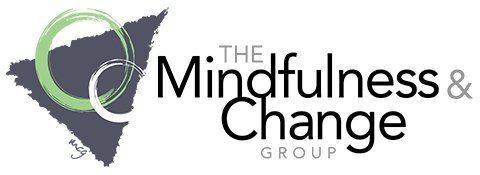Enhancing Workplace Wellness: The Role of Mental Health Resources in Boston’s Business Community
Mental health is increasingly recognized as critical to workplace productivity and employee satisfaction. In Boston, a city known for its thriving business sector and robust healthcare resources, companies are integrating mental health resources into their wellness programs. Read on to understand the importance of mental health resources in enhancing workplace wellness and the options available in Boston for businesses looking to support their employees.
The Importance of Mental Health in the Workplace
Mental health issues can significantly impact employee performance, engagement, and overall workplace atmosphere. Common issues such as anxiety, depression, and stress not only affect individual employees but can also have a broader impact on team dynamics and productivity. Addressing these challenges is not only beneficial for employees’ well-being but is also a strategic business decision that can lead to improved outcomes for organizations (American Psychiatric Association, 2021).
Types of Mental Health Resources for Workplaces
Employee Assistance Programs (EAPs): EAPs are employer-sponsored programs that offer confidential assessments, counseling, and referrals for employees facing personal or work-related issues.
Mental Health Training for Managers: Training sessions can equip managers with the skills to recognize signs of mental health issues and provide appropriate support to their teams.
Onsite Mental Health Services: Some larger companies in Boston offer onsite mental health clinics or wellness centers, providing convenient access to counseling and psychological services.
Mindfulness and Stress Reduction Programs: Programs that teach mindfulness meditation, yoga, or stress management techniques can help reduce workplace stress and improve employee resilience.
Boston’s Mental Health Resources for Businesses
Boston is home to several innovative initiatives aimed at improving workplace mental health:
The Mindfulness & Change Group (MCG): MCG offers specialized programs tailored for corporate environments, focusing on mindfulness training and stress reduction to enhance employee well-being and productivity.
Boston University Center for Psychiatric Rehabilitation: This center provides training and consultation services to organizations aiming to support employees with psychiatric disabilities.
Massachusetts General Hospital’s Workforce Health and Wellness: Offers comprehensive EAP services, including counseling, crisis intervention, and mental health workshops tailored to the needs of businesses.
Massachusetts Paid Family and Medical Leave (PFML) and Mental Health Support
In addition to workplace mental health resources, businesses in Boston should be aware of the Massachusetts Paid Family and Medical Leave (PFML) program, which offers employees important protections, including time off for mental health-related concerns. PFML allows eligible employees to take paid leave for a variety of reasons, including their own serious health condition, which may include mental health issues such as anxiety, depression, or severe stress.
Under PFML, employees can take up to 20 weeks of paid medical leave in a benefit year, allowing them to focus on their mental and physical well-being without the added stress of financial strain or job insecurity. This program is a critical resource for businesses to integrate into their wellness and mental health initiatives, as it can provide employees with the time they need to recover, ultimately contributing to long-term workplace wellness and productivity.
By understanding and promoting PFML as part of their mental health support strategy, Boston businesses can further ensure that employees have the time and resources they need to address their mental health concerns, which can lead to a healthier and more resilient workforce.
For more information on Massachusetts PFML, visit the official Massachusetts government website at Mass.gov.
Many Boston-based companies have reported positive outcomes from integrating mental health resources into their workplace wellness programs. These include decreased absenteeism, higher job satisfaction, and improved employee retention rates. By prioritizing mental health, these companies have not only enhanced the well-being of their employees but also seen tangible improvements in their organizational performance.
In Boston, where business innovation meets world-class healthcare, there is a growing recognition of the critical role mental health plays in workplace wellness. By leveraging local resources such as MCG, Boston University, and Massachusetts General Hospital, companies can provide comprehensive mental health support that benefits both employees and the broader business objectives. Investing in mental health resources is not just good ethics—it’s good business.
